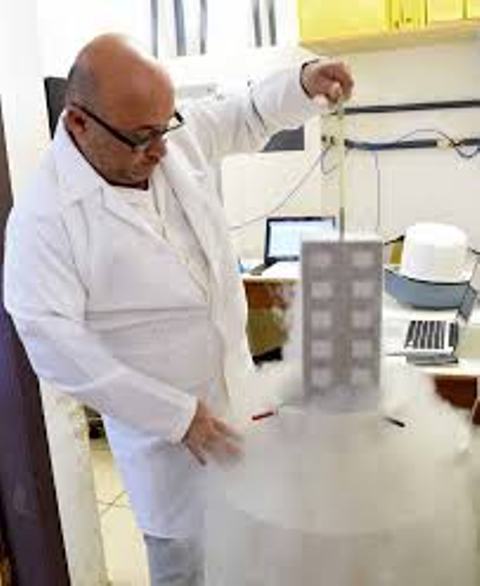
Efficient vaccines against leishmaniasis could take decades to be produced, says researcher
Biological and epidemiological complexity of the leishmaniasis is one of the reasons for the delay
12/05/2016
Dr. Alexandre Reis, a defender of joining efforts of different groups and countries around the subject, believes this impasse is gradually being overcome, and Brazil, along with the BSTM, is a key player
A vaccine against malaria, successfully being used in African countries and reducing deaths by the disease, reveals the advances in researches involving parasitic diseases. However, when talking about leishmaniasis, we are still in the first steps of a long highway, according to the Clinical Parasitology professor at the Federal University of Ouro Preto (UFOP), Doctor Alexandre Barbosa Reis.
Until we have walked enough to reach to effectively powerful and efficient products to be acknowledged as vaccines, we will take years or maybe decades, said Doctor Alexandre. According to him, the reasons for such delay is the fact that leishmaniasis are multifaceted diseases, with a biological and epidemiological complexity absurdly distant from other infectious vector borne diseases caused by protozoa, bacteria and/or viruses.
The researcher also defends joining efforts from different groups and countries around the theme. However, he believes the impasse is being overcome, and Brazil along with the Brazilian Society of Tropical Medicine (BSTM), is a key player. In an unprecedented initiative we hosted two Leishvaccines, were we gathered the main groups working with vaccines to discuss the matter. And more: to compose networks that today translate to several initiatives and efforts of the world vaccine development research community, said the researcher.
To him, only joining the efforts of different research groups, with a strong connection to companies, we will be able to reach vaccines powerful enough to be massively used in endemic regions. Doctor Alexandre believes that, without this cooperation, we will be swimming until we sink or walking in a desert until we are lucky enough to find an oasis.
Vaccines for dogs
In the vaccinology, the production of immunizers against Canine Visceral Leishmaniasis (CVL) has showed itself more attractive than those against Human VL, since the proportion of infected dogs in endemic areas are 10, 20 or 30 times greater than people. This does not mean the vaccine against human VL is not important. It is, especially where the disease behaves as an anthroponosis, i.e., it is transmitted from human to human, explains Doctor Alexandre.
The priority for CVL, according to him, owes, among other reasons, to marketing issues. This happens because the market of veterinary products for small animals has overheated for the last two decades. Encouraged by this and other aspects, researchers focused their efforts in a vaccine specific for dog protection. The big problem is than none of these vaccines were applied as an instrument of population immunization. And, without this use, these immunobiologicals will have little public health reach, said Doctor Alexandre.
He says as an example that, in Brazil, only one of the vaccines against CVL is currently available in the market. And, even though, it is exclusive for veterinary individual use, i.e., sold in clinics and pet shops. This means this vaccine has still not been used as a prophylaxis instrument in the Visceral Leishmaniasis control program in Brazil. The results so far have not convinced the public agents to invest in broadly using this vaccine in the canine population with large scale immunization in dogs from endemic regions, he stressed.
Promising researches
From the VL vaccine researches Doctor Alexandre has joined for the past 20 years, he highlighted a complete proteome immunizer with heterologous protection, i.e., composed by L. braziliensis antigens and saponin as adjuvant (LBSap). Besides this, the specialists research group has invested in adjuvant studies, which are used to power the immune response when administered along with the antigen, and are not likely to be toxic or to cause severe side effects.
The groups researchers also continuously traced, for the last 10 years, the L. braziliensis’ and L. infantums genomes, selecting several coded proteins that could be used as vaccine candidates.
At last, working with what we call rational vaccinology, i.e., drawing and studying the vaccine candidates for several methods, as well as the used adjuvants, we will propose multi peptide and chimeric vaccines, he stressed while adding these immunizers can be more qualified than single antigen vaccines, considering the protection against a disease whose etiological agent has a gigantic proteomic complexity.…










